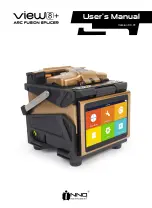
54
Electromagnetic Compliance - 2
g) the immunity of other equipment in the environment. The user shall ensure that other equipment
being used in the environment is compatible. This may require additional protection measures;
h) the time of day that cutting or other activities are to be carried out.
The size of the surrounding area to be considered will depend on the structure of the building and
other activities that are taking place. The surrounding area may extend beyond the boundaries of
the premises.
Assessment of cutting installation
In addition to the assessment of the area, the assessment of arc cutting installations may be
used to evaluate and resolve cases of interference. An emission assessment should includ in situ
measurements as specified in Clause 10 of CISPR 11:2009. In situ measurements may also be used
to confirm the efficiency of mitigation measures.
Mitigation measures
Public supply system :
Arc cutting equipment should be connected to the public supply system
according to the manufacturer’s recommendations. If interference occurs, it may be necessary to
take additional precautions such as filtering of the public supply system. Consideration should be
given to shielding the supply cable of permanently installed plasma cutting equipment, in metallic
conduit or equivalent. Shielding should be electrically continuous throughout its length. The
shielding should be connected to the plasma cutting power source so that good electrical contact is
maintained between the conduit and the plasma cutting power source enclosure.
Maintenance of the plasma cutting equipment :
The plasma cutting equipment should be routinely
maintained according to the manufacturer’s recommendations. All access and service doors and
covers should be closed and properly fastened when the plasma cutting equipment is in operation.
The plasma cutting equipment should not be modified in any way, except for those changes and
adjustments covered in the manufacturer’s instructions.
Cutting cables :
The cutting cables should be kept as short as possible and should be positioned
close together, running at or close to the floor level.
Equipotential bonding :
Bonding of all metallic objects in the surrounding area should be
considered. However, metallic objects bonded to the work piece will increase the risk that the
operator could receive an electric shock by touching these metallic objects and the electrode at the
same time. The operator should be insulated from all such bonded metallic objects.
Earthing of the workpiece :
Where the workpiece is not bonded to earth for electrical safety, nor
connected to earth because of its size and position, for example, ship’s hull or building steelwork,
a connection bonding the workpiece to earth may reduce emissions in some, but not all instances.
Care should be taken to prevent the earthing of the workpiece increasing the risk of injury to users
or damage to other electrical equipment. Where necessary, the connection of the workpiece to
earth should be made by a direct connection to the workpiece, but in some countries where direct
connection is not permitted, the bonding should be achieved by suitable capacitance, selected
according to national regulations.
Screening and shielding :
Selective screening and shielding of other cables and equipment in the
surrounding area may alleviate problems of interference. Screening of the entire cutting area may
be considered for special applications.
Not to be used in residential locations where the electrical power is provided by
the public low-voltage supply system.
U
S
E
R
MAN
U
AL








































